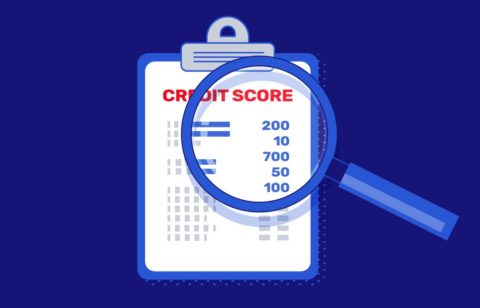It might be nice to have a perfect credit score but that’s about as likely as having perfect health. If you want to have better health, you need to make healthy exercise and diet choices today. Fortunately, you can do the same thing for your credit score.
Do you know your credit score?
The only way you can know if your credit score actually needs fixing is to get it. There are several ways to get your credit score but the best is to go to www.myfico.com. FICO is the company that developed credit scoring in the first place and it’s the only way to get your true credit score. You can either pay for your score or get it free if you sign up for a free trial of FICO’s Score Watch program. If you do this, and if you don’t want to continue the program, be sure to cancel out before your free trial ends. Otherwise, you’ll be on the hook for three months’ worth of the service.
1. Ask to have your credit limit increased
If you’re not happy with your credit score, the first thing you could do to improve is contact your credit card company and ask to have your credit limit increased. However, it’s unlikely that this will work unless you have an excellent credit record with the company. You can find the credit card company’s phone number on your latest statement or online. Contact an agent, point out that you’ve been a good customer and always made your payments on time and request a credit limit increase. If you can get an increase, this will definitely improve your credit health.
2. Plead for forgiveness
If you’ve made a past late payment, send a “goodwill adjustment letter” to the credit card company asking for forgiveness. You will need to make a case for why it should remove the delinquency. Point out that you’ve been a very loyal customer and how you’ve improved your financial situation since you made that one mistake. If you haven’t heard back from your credit card provider after 30 days, be sure to do a follow up.
3. Pay down your credit card debt faster
Another good way to improve your credit score is to pay down your credit card debt faster. The objective here is to pay down your debts so that you can get your credit card utilization rate down to 30%. This is the rate that is recommended by credit card experts. You can determine your current credit utilization rate by adding up your credit card balances and then dividing that number by the sum of your credit card limits. For example, if your total credit card limits are $20,000 and you have a total of $15,000 in credit card balances, you would have a credit utilization rate of 75%, which would be way too high.
4. Transfer your balances
If you have multiple credit cards you might be able to transfer their balances to a new card that has a good introductory interest rate. For that matter, there are cards available with 0% interest balance transfers. If you were able to transfer all or some of your balances to one of these cards, you would have anywhere from 6 to 18 months where you would be interest-free. This would lower your credit card utilization and could be of good help if you’re ready to really confront your credit card debts.
5. Clear any errors in your credit reports
If you find there are errors in your credit report that could be affecting your credit score, do what you can to get them cleared. In fact, this should be a top priority. However, do watch out for those companies that say they can remove all of the negative information from your report. This is just not true. If there are negative items on your credit report that are accurate, they cannot be removed. If you do think you need the help of a company to repair your credit report, be sure to do your homework so you will know if the company is really trustworthy and what it could actually do for you.







